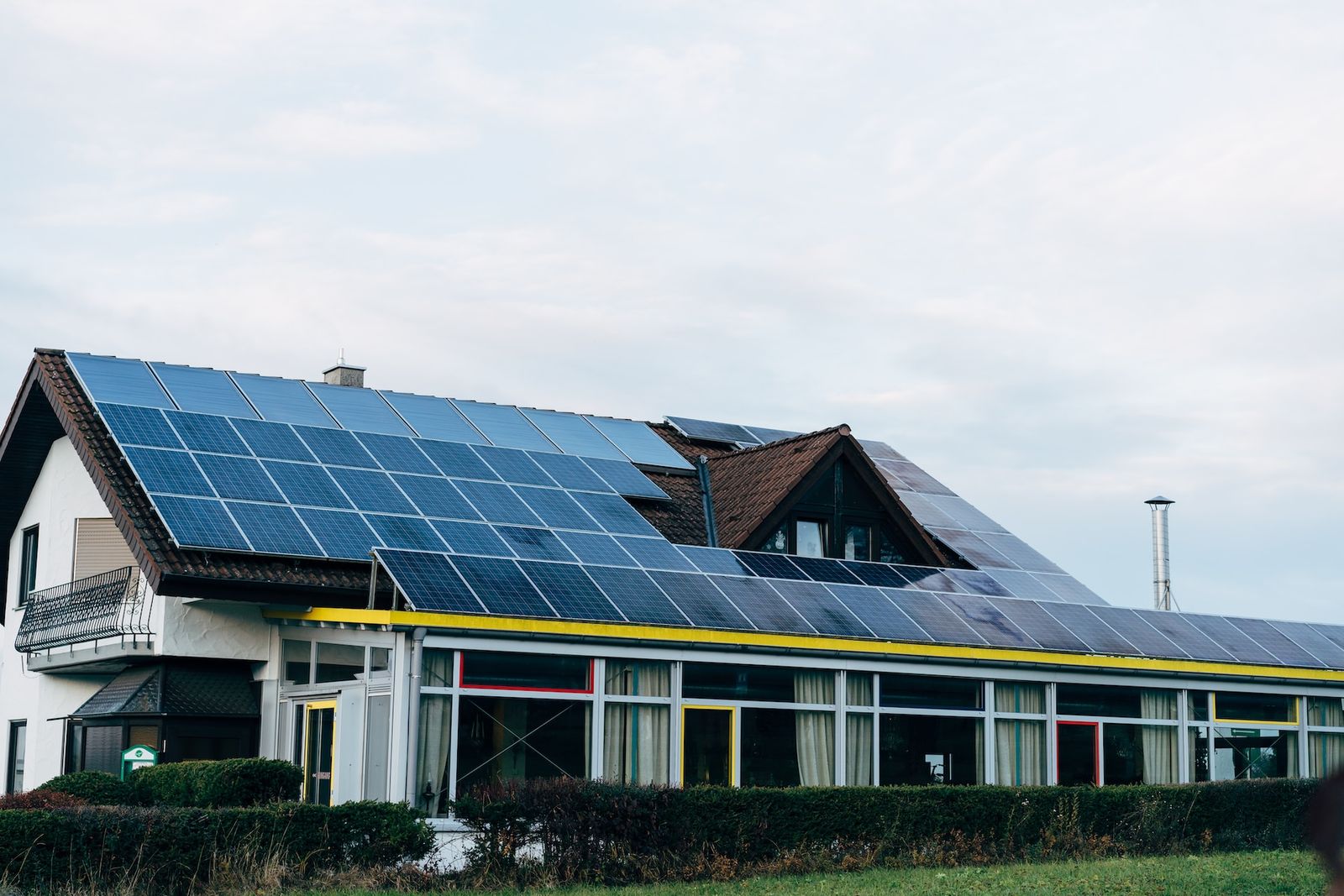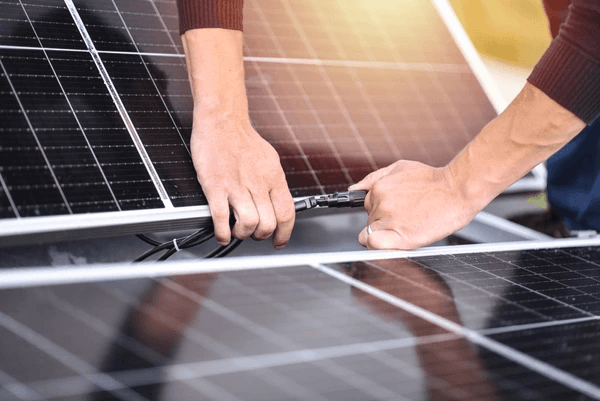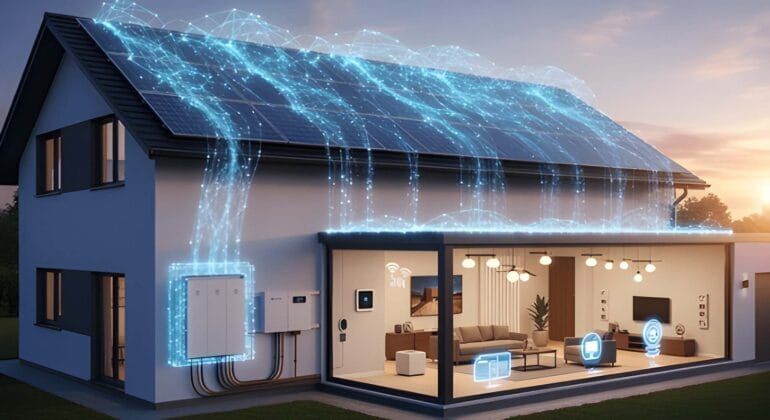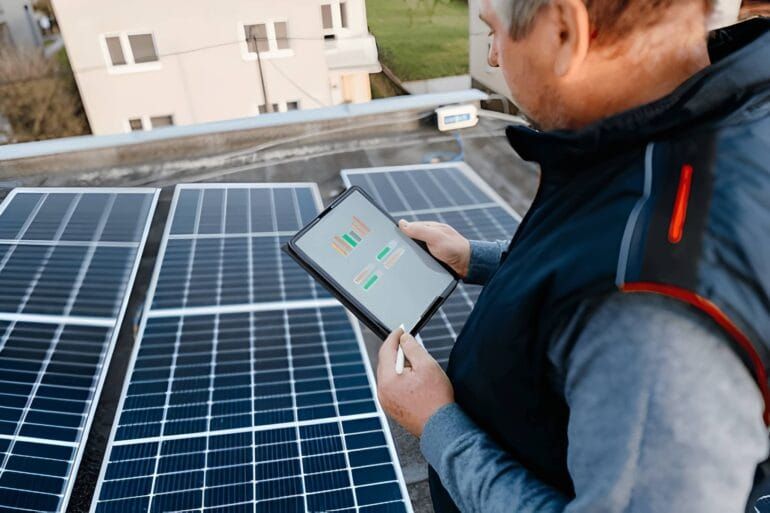In today’s world, where energy costs are rising and environmental concerns are mounting, making the switch to residential solar panels has become a smart and eco-friendly choice. By harnessing the power of the sun, homeowners can significantly reduce their energy bills while contributing to a cleaner and more sustainable future.f
Understanding Solar Power
What are Residential Solar Panels?
Residential solar panels, also known as photovoltaic (PV) panels, are devices designed to convert sunlight into electricity. These panels are made up of multiple solar cells that work together to generate power when exposed to sunlight.
How Does Solar Energy Work?
Solar panels use a process called the photovoltaic effect to generate electricity. When sunlight hits the solar cells, it dislodges electrons, creating a flow of electricity. This direct current (DC) electricity is then converted into alternating current (AC) electricity through an inverter, making it suitable for powering household appliances.
Benefits of Switching to Residential Solar Panels
Drastically Lower Energy Bills
By generating your electricity from the sun, you can significantly reduce or even eliminate your reliance on the grid. This translates to substantial savings on your monthly energy bills, allowing you to allocate your hard-earned money to other essential expenses.
Environmental Impact
Switching to solar panels significantly reduces your carbon footprint. Traditional electricity production relies on fossil fuels, which release harmful greenhouse gases into the atmosphere. Solar energy is clean and renewable, helping to combat climate change and protect the environment for future generations.
Increase in Home Value
Homes equipped with solar panels tend to have higher resale values. Potential buyers are attracted to the prospect of lower energy bills and a sustainable lifestyle, making solar-equipped homes more desirable in the real estate market.
Government Incentives
Many governments offer incentives such as tax credits and rebates to encourage homeowners to adopt solar energy. These incentives can help offset the initial installation costs and make switching to solar panels even more affordable.
Considerations Before Making the Switch
Initial Investment
While the long-term savings are substantial, the upfront cost of purchasing and installing solar panels can be a deterrent for some homeowners. However, it’s essential to consider solar panels as a long-term investment that pays off over time.
Location and Sunlight
The efficiency of solar panels depends on the amount of sunlight they receive. Homes in areas with ample sunlight will generate more electricity than those in cloudy regions. It’s crucial to assess your home’s sun exposure before deciding on solar panel installation.
Maintenance and Durability
Solar panels are relatively low-maintenance, but they do require periodic cleaning to ensure optimal efficiency. Additionally, high-quality panels come with warranties that guarantee their performance for several years.
Installation Process and Benefits
Professional Installation
To ensure the proper installation of solar panels, it’s recommended to hire a professional installer. They will assess your home’s energy needs, recommend the right system size, and handle all the technical aspects of installation.
Energy Independence
By generating your electricity, you become less dependent on external energy sources. This provides a sense of energy security and shields you from the volatility of energy prices in the market.
Net Metering
Many utility companies offer net metering, allowing homeowners to sell excess electricity generated by their solar panels back to the grid. This further offsets the initial investment and provides additional savings.
Conclusion
Making the switch to residential solar panels is a decision that benefits both your wallet and the planet. Not only can you significantly reduce your energy costs, but you’ll also contribute to a cleaner environment and enjoy the perks of energy independence. With government incentives and advancements in solar technology, there’s never been a better time to embrace the power of the sun.
FAQs
- Are solar panels suitable for all types of homes? Yes, solar panels can be installed on various types of homes, including single-family houses, townhouses, and even apartments.
- How long does it take to recoup the initial investment in solar panels? The payback period varies depending on factors like energy usage, location, and available incentives. On average, homeowners can recoup their investment within 5 to 10 years.
- What happens on cloudy days when solar panels generate less electricity? Solar panels can still generate electricity on cloudy days, although the output might be reduced. However, excess energy generated on sunny days can compensate for cloudy periods.
- Do I need to clean my solar panels regularly? Periodic cleaning is recommended to maintain optimal efficiency. Rain can help wash away dirt, but occasional cleaning ensures maximum energy generation.







